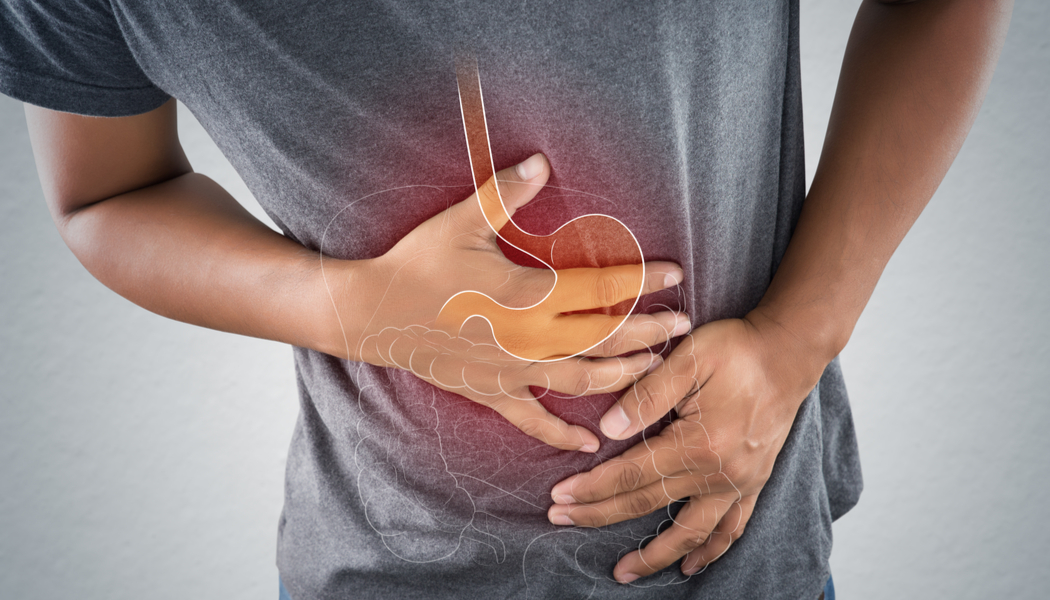Stomach Cancer Warning Signs: Understanding Your Risk
Stomach cancer is frequently diagnosed at an advanced stage because early symptoms are vague and often go overlooked. Learn what symptoms to watch for and steps you can take to help lower your risk.
November is Stomach Cancer Awareness Month. Stomach cancer — also known as gastric cancer — is the fifth most commonly diagnosed cancer worldwide. In fact, it is estimated that approximately 27,600 new cases of stomach cancer will be diagnosed in the United States alone in 2020.1
One of the most significant challenges facing patients who are diagnosed with stomach cancer is that the cancer is typically not diagnosed until it has reached an advanced stage, as it sometimes causes no symptoms in earlier stages. Symptoms that are present can be vague and easily overlooked by patients and health care providers alike.
Let’s take a closer look at some of the signs, symptoms, and risk factors associated with stomach cancer, and learn steps that you can take to help reduce your risk for developing this devastating disease.
Stomach Cancer Signs and Symptoms
Early symptoms associated with stomach cancer can include:
- Bloating
- Heartburn
- Nausea
- Vague discomfort in the abdomen
If you have lost a lot of weight without trying, experienced severe fatigue, noticed blood in your stool or vomit, felt full after eating even a small amount of food, noticed a change in your bowel habits, or experienced other persistent, unusual gastrointestinal symptoms, you should make an appointment to speak with your health care provider.2
The good news is that stomach cancer is pretty rare, particularly in developed countries such as the U.S. If you are experiencing any of these symptoms, chances are it is another, more mild condition, such as a stomach virus, that is the cause.
Understanding Your Stomach Cancer Risk
Helicobacter pylori (H. pylori) bacterial infection is one of the primary risk factors for developing stomach cancer. Thanks to advances in diagnostic and treatment tools, H. pylori infections are now being found and treated much earlier than in the past, which has led to an overall decrease in the number of patients diagnosed with stomach cancer.2
Other risk factors that can increase a person’s chance of being diagnosed with stomach cancer include:
- Smoking
- Gender (men are more likely than women to be diagnosed with stomach cancer)
- History of being overweight or obese
- Previous surgery for ulcers
- Blood type (people with type A blood have a higher risk for developing stomach cancer)
- Family history and/or certain genetic conditions
- Diet high in processed meats
Age is also an important risk factor. Historically, older adults have been at a higher risk than younger people of developing stomach cancer. However, a recent study published in the Journal of the National Cancer Institute found that the incidence of a type of cancer that occurs in the lower stomach (noncardia gastric cancer) has been increasing among some Americans, particularly women, under the age of 50.3
To help decrease your risk for developing stomach cancer, maintain a healthy weight and lifestyle with a clean diet that is rich in fresh vegetables.2 To learn more about the importance of a healthy diet in decreasing your cancer risk, check out the National Foundation for Cancer Research’s (NFCR) cancer-fighting food blog posts.
How NFCR Helps Advance Stomach Cancer Research
NFCR is proud to support researchers who have dedicated their careers to advancing treatments for all patients affected by cancer.
One NFCR-funded scientist — Wei Zhang, PhD, professor at Virginia Tech-Wake Forest University and director of Cancer Genomics and Precision Oncology at Wake Forest Baptist Medical Center — recently collaborated with a team of other researchers and the Tissue Bank Consortium in Asia to analyze advanced genome-sequencing data from hundreds of stomach cancer samples, among which they identified defects in three cellular signaling pathways. Now, several newly developed drugs that target those pathways may lead to improved treatments for patients affected by stomach cancer.
To learn more about NFCR-funded research in the area of stomach cancer, please visit our Stomach and Esophageal Cancers webpage.
Sign-up to Stay Informed About Cancer Research Breakthroughs with NFCR!
Additional Reads You May Enjoy:
Reaching a Stomach Cancer Diagnosis Can Be An ‘Emotional Rollercoaster’
Wei Zhang: The Art of Precision
10 Ways Your Diet Can Reduce Your Cancer Risk
___________________________________________________________________________________
References:
1 Cancer Types: Stomach and Esophageal Cancers. (2020, September 18). Retrieved October 12, 2020, from https://www.nfcr.org/cancer-types/esophageal-stomach-cancers/
2 Milanowski, A. (2020, August 05). 7 Potential Warning Signs of Stomach Cancer. Retrieved October 12, 2020, from https://health.clevelandclinic.org/7-potential-warning-signs-of-stomach-cancer/
3 NCI Staff (2018, January 18). Changing U.S. Incidence of Lower Stomach Cancer. Retrieved October 12, 2020, from https://www.cancer.gov/news-events/cancer-currents-blog/2018/lower-stomach-cancer-incidence-changing
A world without cancer is possible. Help us turn lab breakthroughs into life-saving realities.

5.7 Million+
Donors who have fueled NFCR’s mission

$420 Million+
Invested in high-impact research & programs

36+ Labs & Hundreds of
Nobel Laureates & Key Scientists received NFCR funding, driving breakthrough research













